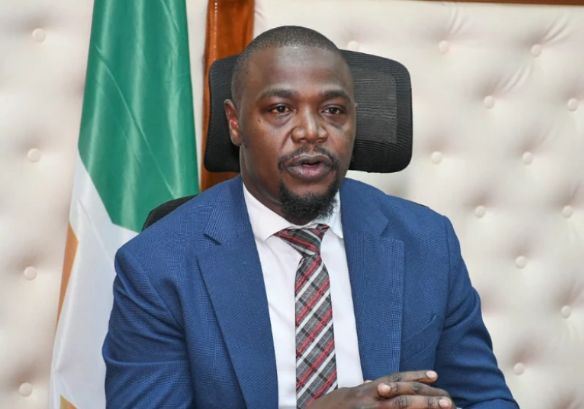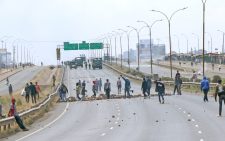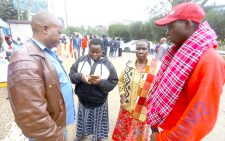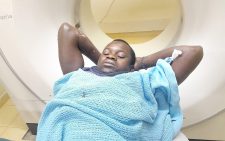‘Slave labour’: Trainee doctors work long hours without pay

Dr Twahir Otieno, a bright young budding doctor, stepped into the crowded corridor of Kenyatta National Hospital (KNH) with a sense of quiet determination.
As the world outside thrummed with the fast-paced energy of a city moving forward, Otieno and countless other doctors at Kenya’s largest referral facility stood at the intersection of hope and exhaustion, caught between the demands of patient care and the unrelenting pressure of academic progression.
In his boyhood, Otieno had always dreamed of becoming a doctor, driven by an unyielding desire to help others.
But now, as he was immersed in a challenging master’s programme in surgery, he found himself in a silent war that few truly understood.
Like many others like him, Otieno’s days begin before dawn and stretch long into the night. Each morning, he rushes to the hospital, where he and others have to care for patients – holding consultations, conducting rounds, and overseeing minor procedures.
His time in the ward is usually spent navigating the complexities of healthcare, diagnosing ailments, and providing support to patients, many of whom have nowhere else to turn.
But in the midst of these critical tasks, Otieno is also a student. As part of his master’s programme, he must attend lectures, participate in seminars, write assignments, and present his research.
At times, he feels as though he is juggling two lives: one as a doctor fighting for his patients’ well-being and another as a student striving to excel in the academic rigour of his specialisation.
His patient load is heavy, with the hospital always short of staff. Like his colleagues, Otieno has made a personal commitment to his profession, but the reality is harsher than he had anticipated.
Despite his long hours, his dedication, and the sheer responsibility he holds in his hands, Otieno is not paid adequately for his work.
In fact, the compensation for his role as a doctor-in-training barely covers his basic living expenses.
‘Unpaid assistants’
Worse still, KNH administrators seem to view him and other colleagues more as unpaid assistants than as vital contributors to the healthcare system.
Every evening after their hospital shifts, Otieno and colleagues return to their apartments to catch up on lectures and study for their exams.
The pressure is unrelenting. But the worst part wasn’t the lack of sleep or the stress of balancing everything. It is the invisible burden of knowing that their commitment to the hospital and their patients is being taken for granted.
Otieno’s peers, who are in a similar position, have often shared the same frustrations. Mwaura, a fellow registrar in internal medicine, confided in Otieno one evening as they grabbed a late dinner in the hospital cafeteria.
“I feel like they see us as a cheap workforce. We work the same hours as the specialist doctors, but we’re paid a fraction of what they make.And sometimes, we’re expected to pick up the slack without any recognition,” Mwaura said with a hint of bitterness.
“It’s frustrating because we’re the ones who make sure the patients are cared for, but no one notices how much we sacrifice.”
The situation of Otieno and his colleagues at KNH is not an isolated one. It is replicated at all public hospitals used by training institutions such as the University of Nairobi, Kenyatta University, Jomo Kenyatta University of Agriculture and Technology, Moi University, and Maseno University for their medical students’ practicals.
Though the students, commonly referred to as registrars, do the donkey work at KNH, Jaramogi Oginga Odinga Teaching and Referral Hospital, Kenyatta University Teaching, Referral and Research Hospital, Coast General Teaching and Referral Hospital, and Moi Teaching and Referral Hospital, they are treated like slaves.
The death of Dr Daniel Ndege Chacha at KNH in the middle of last month raised serious concerns about the working conditions and potential burnout faced by the medical professionals, highlighting the need for improved resources.
Chacha had dedicated his life to saving patients at KNH, but when he needed urgent medical care, the same hospital turned him away because he couldn’t afford treatment.
The 37-year-old doctor, who was training as a specialist in obstetrics and gynaecology at the University of Nairobi’s KNH campus, had sought care at KNH, only to be denied treatment for lacking health insurance.
According to the Kenya Medical Practitioners and Dentists Union (KMPDU), about seven doctors died by suicide in 2024 due to frustrations at work, while several others degenerated into depression.
“The registrars who offer most of the services in Levels 5 and 6 hospitals work under terrible conditions. In fact, they are being enslaved,” says Dr Davji Atellah, the KMPDU secretary general.
Suicide cases
In an interview with People Daily, Atellah said there are two categories of medical registrars – those released by counties to study for their master’s degrees and PhDs and the self-sponsored ones.
While those employed by counties are paid some allowances, the self-sponsored offer free services in the hospitals.
“It is a pity because these doctors serve patients who pay for the treatment but are never paid anything. As a union, we have been pushing the government to pay for their services,” says Atellah.
Besides working without pay, he said, the registrars lack health insurance and cannot afford to be treated at the same hospitals they work for.
Atellah cites the case of Stephen Mogusu, who died after enduring five months without pay.
Mogusu did not have health insurance and his family had started an online fundraiser while he was in the intensive care unit.
Machakos County, where Mogusu worked, said he was employed under the national government’s universal health programme.












